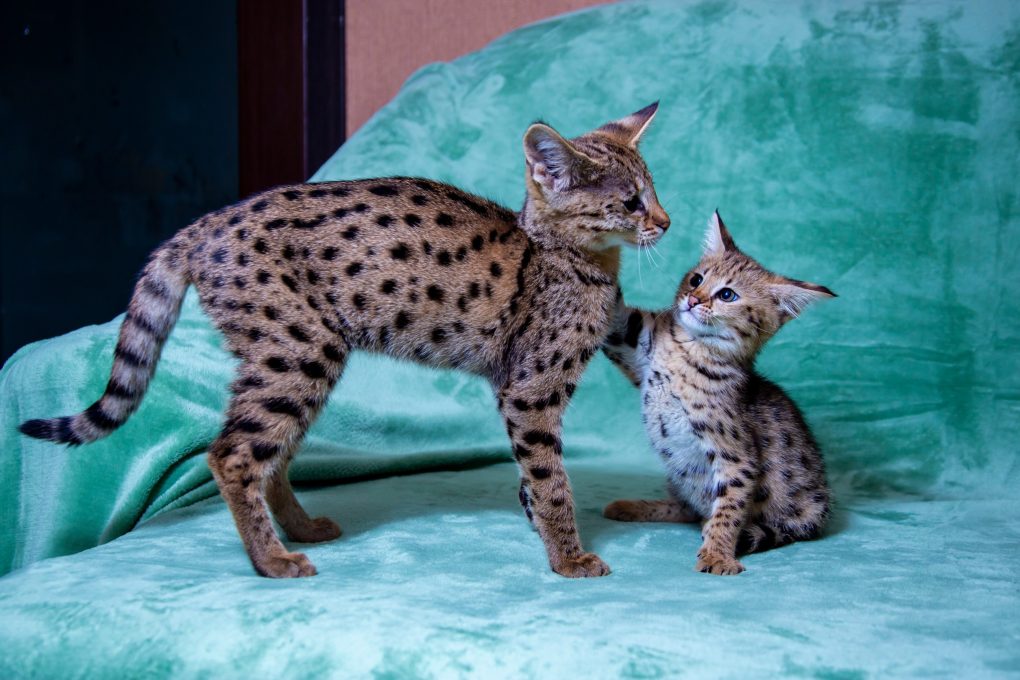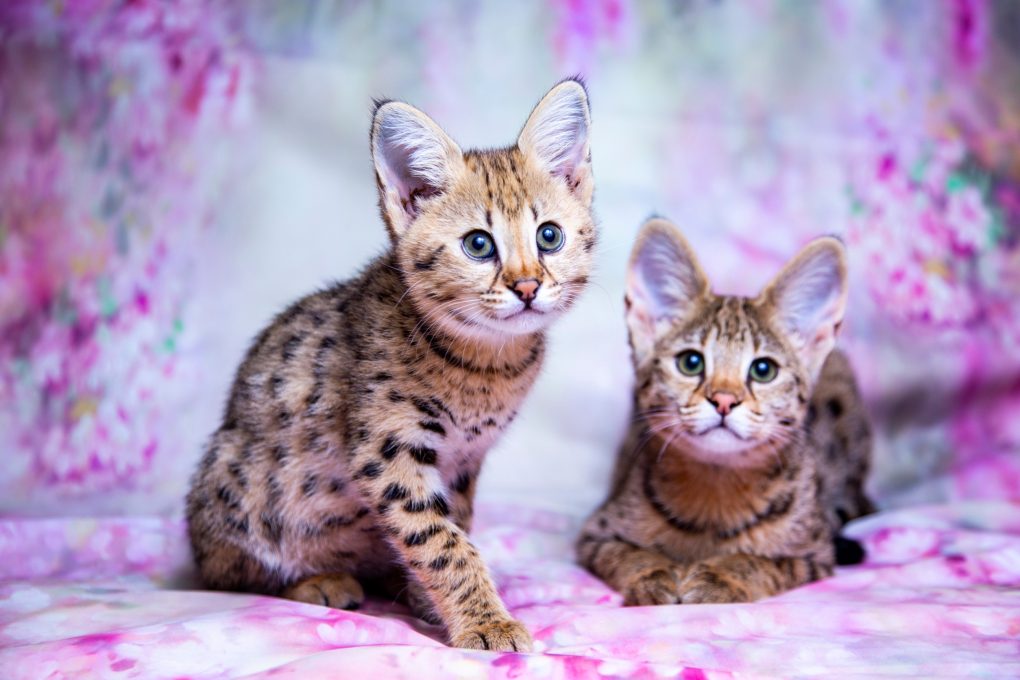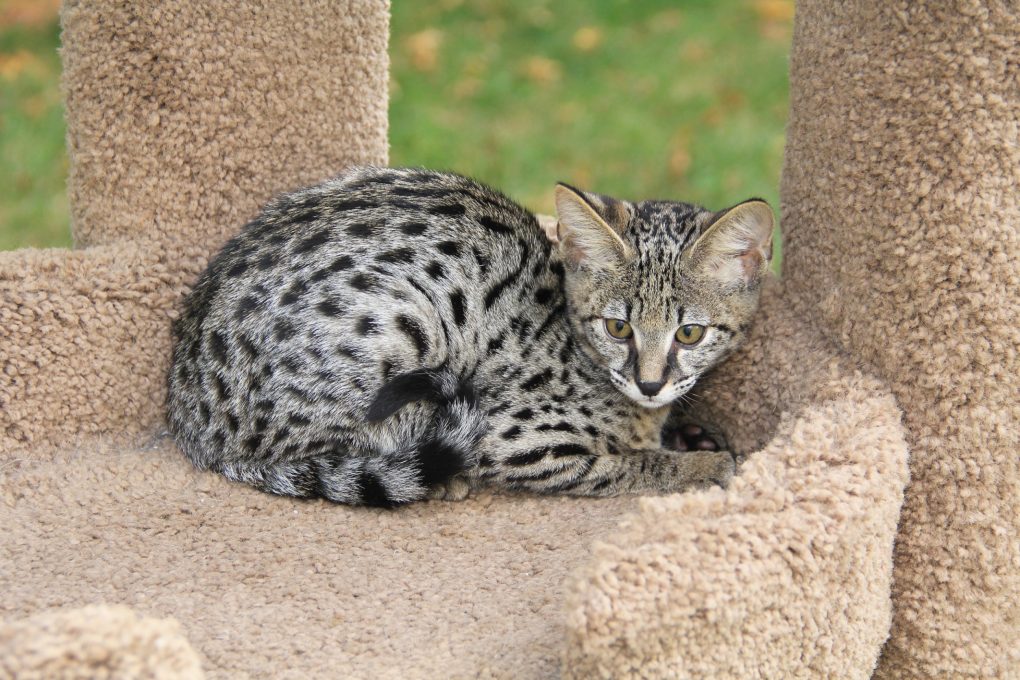Will a Savannah Cat Protect You: What You Need to Know When Owning a Savannah Cat
Savannah cats are not typically bred for protective behavior, and a Savannah cat is unlikely to protect its owner instinctively. While some cats may become protective of their owners in certain situations, such as if they sense a threat, this behavior is uncommon in Savannah cats. It’s important to remember that Savannah cats, like all cats, are predators and are naturally more interested in hunting and playing than protecting their owners.
Table of Contents
All About Savannah Cats
Appearance


Savannah cats are known for their unique and distinctive appearance. According to Elite veterinary care, they are a hybrid breed created by breeding a domestic cat with a wild African Serval and a domestic cat. As a result, they inherit many of the physical characteristics of their wild ancestors, and here are some key physical features of Savannah cats:
- Size: Savannah cats are known for their tall, slender, and athletic build. They are typically larger than most domestic cats and can weigh between 10 to 20 pounds or more.
- Coat: Savannah cats have a short, dense, soft coat typically patterned with spots and stripes. They can come in various colors: brown, black, silver, and gold.
- Ears: Savannah cats are known for their large, tall, and upright ears, which give them a distinctive wild appearance.
- Legs: Savannah cats have long, slender legs, much taller than most domestic cats. This gives them an athletic and graceful appearance.
- Tail: Savannah cats have a long, slender tail that is typically as long as their body. It is often patterned with spots or stripes and is held straight up.
Loyalty
Savannah cats, like all cats, are independent animals that are not known for their loyalty in the same way that dogs are. While Savannah cats can form strong bonds with their owners and be affectionate and loving, they do not have a strong sense of loyalty.
However, this does not mean Savannah cats are not affectionate or loving, so many Savannah cat owners form strong bonds with their pets and enjoy their company.
Socialization
Socializing a Savannah cat involves exposing them to various experiences, people, animals, and environments so that it can become confident and comfortable in different situations.
Here are some tips for socializing a Savannah cat:


- Start early: The earlier you start socializing your Savannah cat, the better. Kittens are most receptive to socialization between 2 and 7 weeks.
- Introduce new experiences gradually: Gradually introduce your Savannah cat to new experiences, people, and animals so that they can become comfortable and confident.
- Use positive reinforcement: Use treats, toys, and praise to encourage your Savannah cat to explore new experiences and interact with new people and animals.
- Expose your cat to various people and animals: Encourage your Savannah cat to interact with various people, including children, older adults, and people with disabilities.
- Take your Savannah cat on outings: Take your Savannah cat on outings, such as trips to the park or visits to friends’ homes, so that they can experience new environments.
- Provide plenty of positive experiences: Make sure your Savannah cat has plenty of positive experiences, such as playing, grooming, and affection, so that they have a positive association with new experiences.
Intelligence
Savannah cats are considered one of the most intelligent breeds of cats. Their intelligence is partly due to their mixed heritage, as Savannah cats are a cross between a domestic cat and a wild African Serval.
Savannah cats can learn tricks and respond to commands, and many owners have reported that their Savannah cats are quick learners and able to solve problems. Savannah cats are also known for their playful and curious nature, and they enjoy playing and exploring their environment.
Temperament
The temperament of a Savannah cat can vary greatly depending on the individual cat, but in general, Savannah cats are known to be friendly, affectionate, and social.. The temperament of a Savannah cat can also be influenced by genetics, socialization, and environment. It’s important to remember that each cat is unique, and getting to know an individual cat’s personality before bringing one into your home is essential.
House Pets
Savannah cats can make good house pets, but they are only suitable for some. Savannah cats are a unique breed that requires a lot of attention and care, and they are not the best choice for someone looking for a low-maintenance pet.
Savannah cats are highly active and need a lot of physical and mental stimulation. They are also very social, love to play, and need plenty of attention and interaction with their owners. They are also known to be intelligent and trainable, but they can also be mischievous and require a lot of patience and consistency in their training.
In terms of living arrangements, Savannah cats need plenty of space to run, jump, and play, so they are best suited to homes with plenty of indoor and outdoor space. They are also prone to specific health problems, so providing them with regular veterinary care is crucial.
Reminders When Getting a Savannah Cat


Before getting a Savannah cat, ensure you have the space to accommodate it and enough food and water to feed it. This breed requires regular physical activity to keep its body healthy, so be sure to provide plenty of toys and exercise for them as well.
Also, be prepared to provide plenty of litter boxes due to their high litter-box usage rates. Lastly, always watch for warning signs that your Savannah cat may be in danger, such as growling or hissing. If you’re considering getting a Savannah cat, the following are also essential things to keep in mind:
- Cost: Savannah cats are a rare and expensive breed, and their cost can range from several thousand dollars to tens of thousands of dollars depending on the cat’s generation and appearance. Be sure to budget and research before getting a Savannah cat.
- Training: Savannah cats are intelligent and can be trained, but they can also be stubborn and mischievous. Make sure you are prepared to invest time and effort into training your Savannah cat.
- Space: Savannah cats are an active breed with plenty of space to play and explore. Make sure you have a safe and suitable environment for your Savannah cat.
- Diet: Savannah cats have a unique dietary requirement due to their mixed heritage, and it’s essential to provide them with a balanced diet that meets their nutritional needs.
- Vet care: Savannah cats are prone to specific health problems, and it’s essential to keep up with regular veterinary care to ensure their health and well-being.
